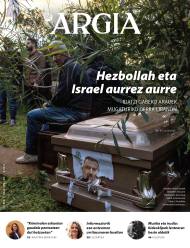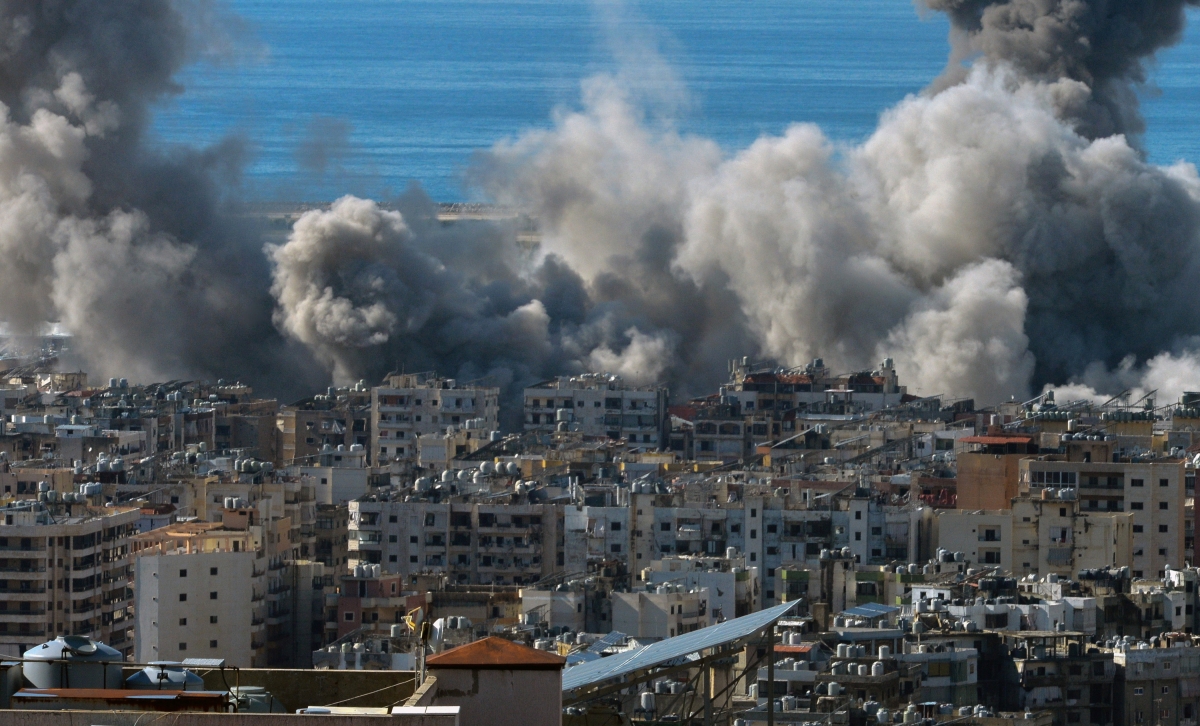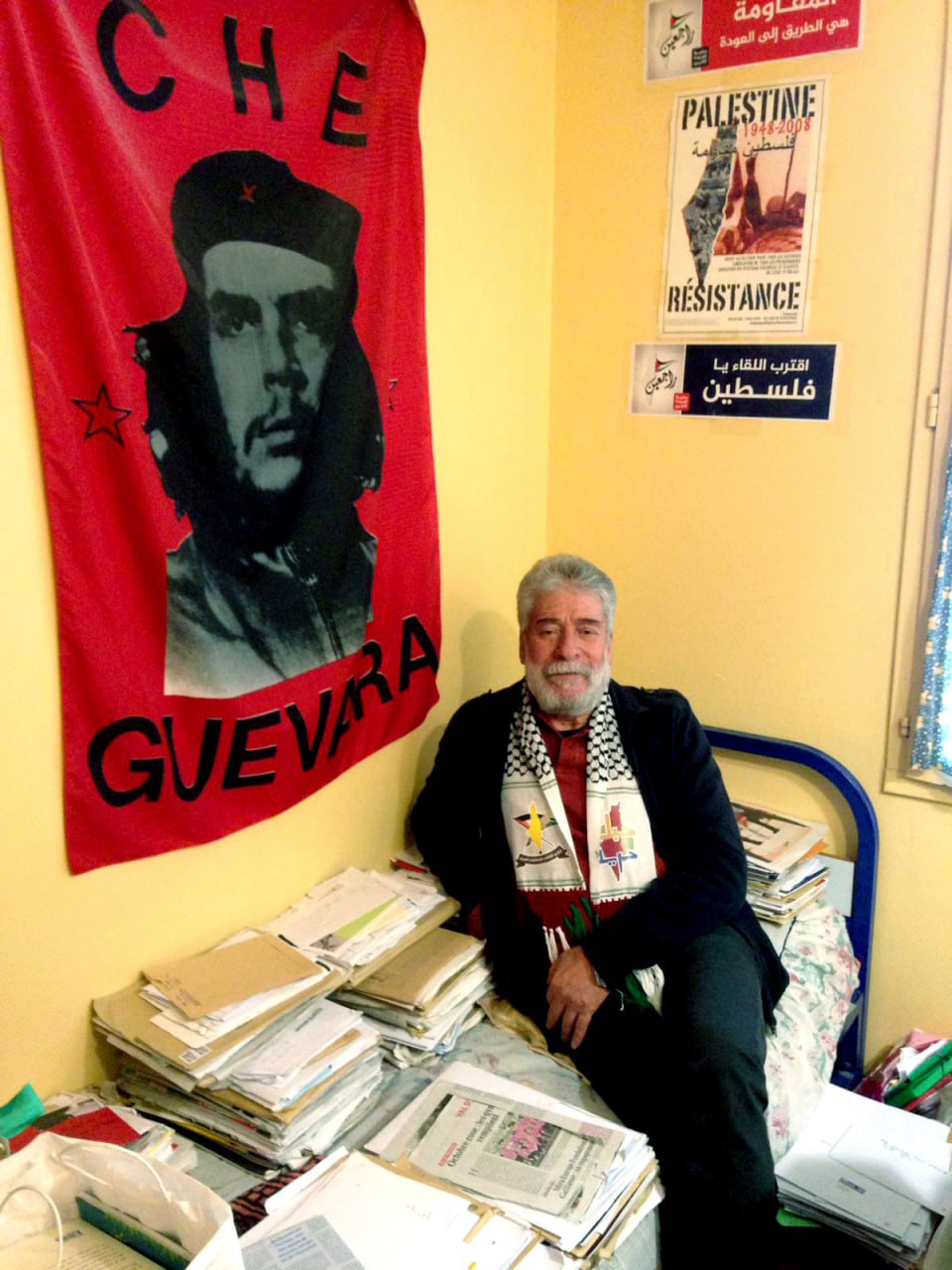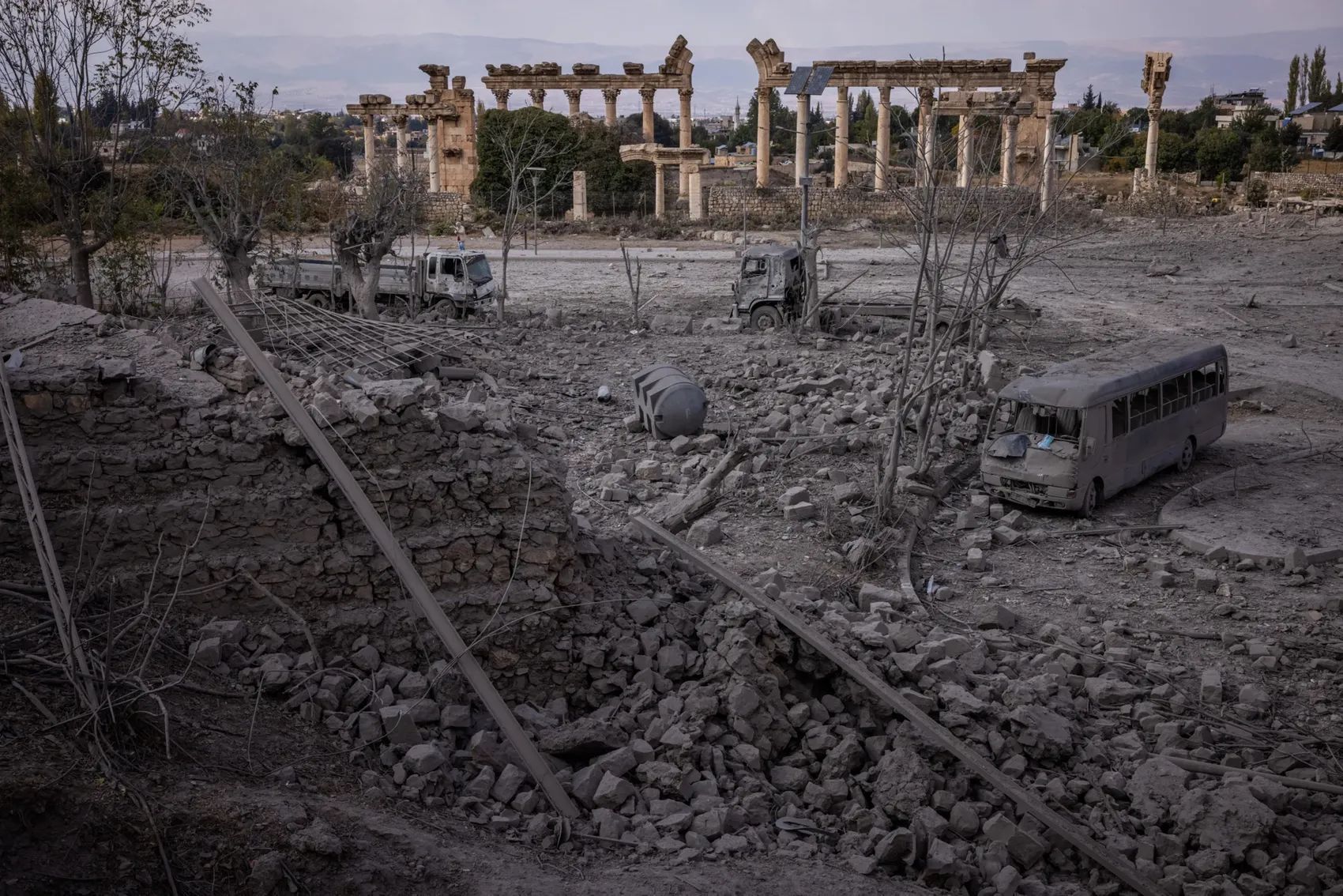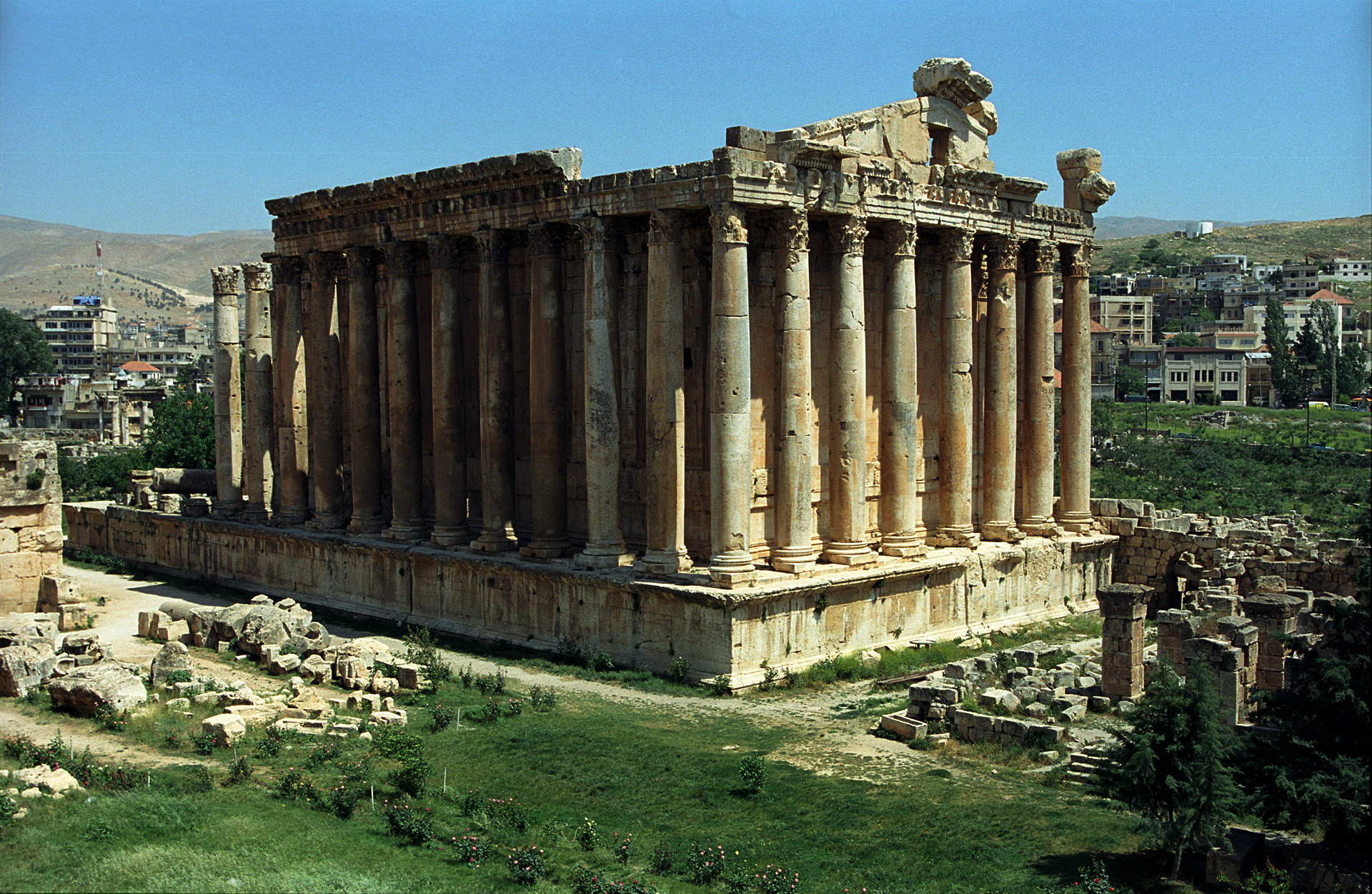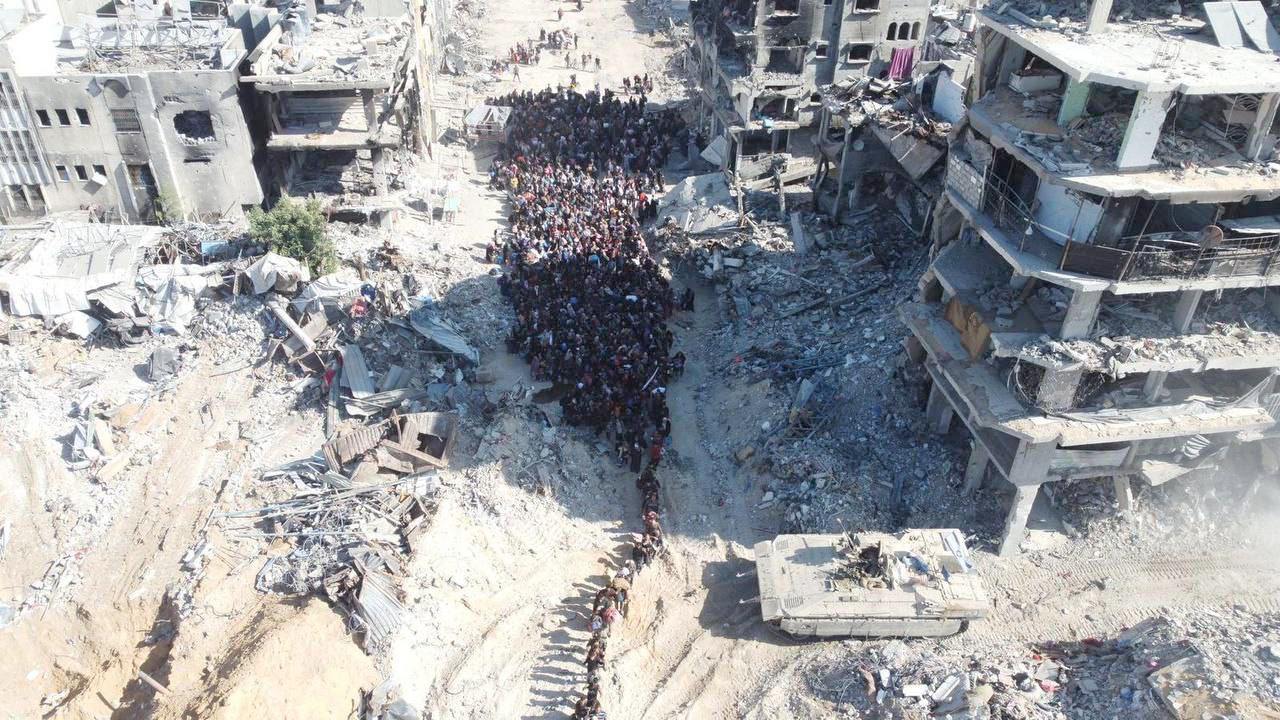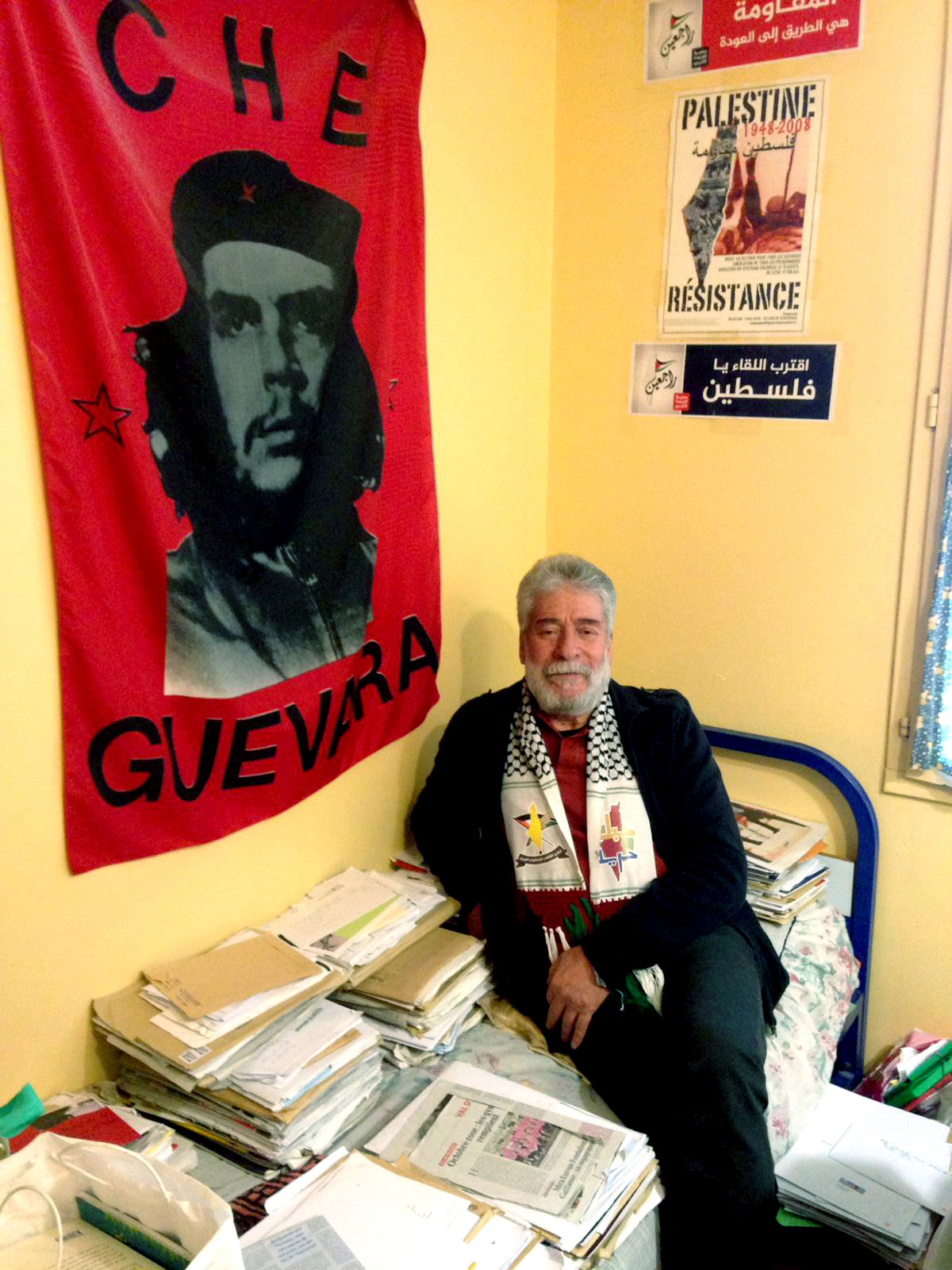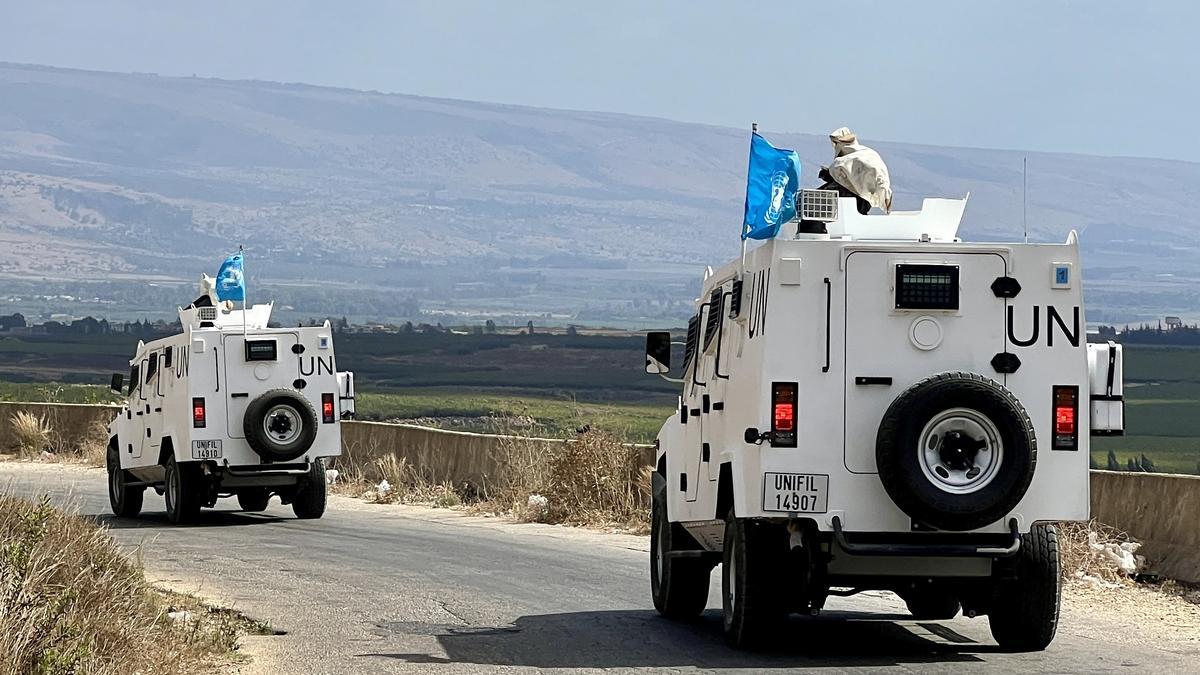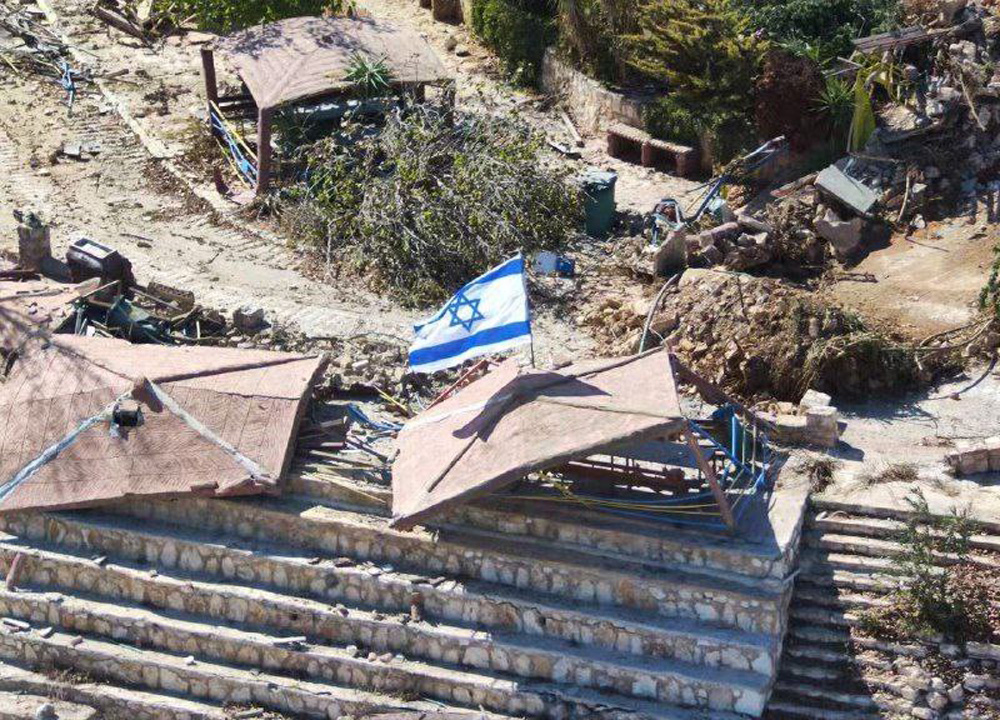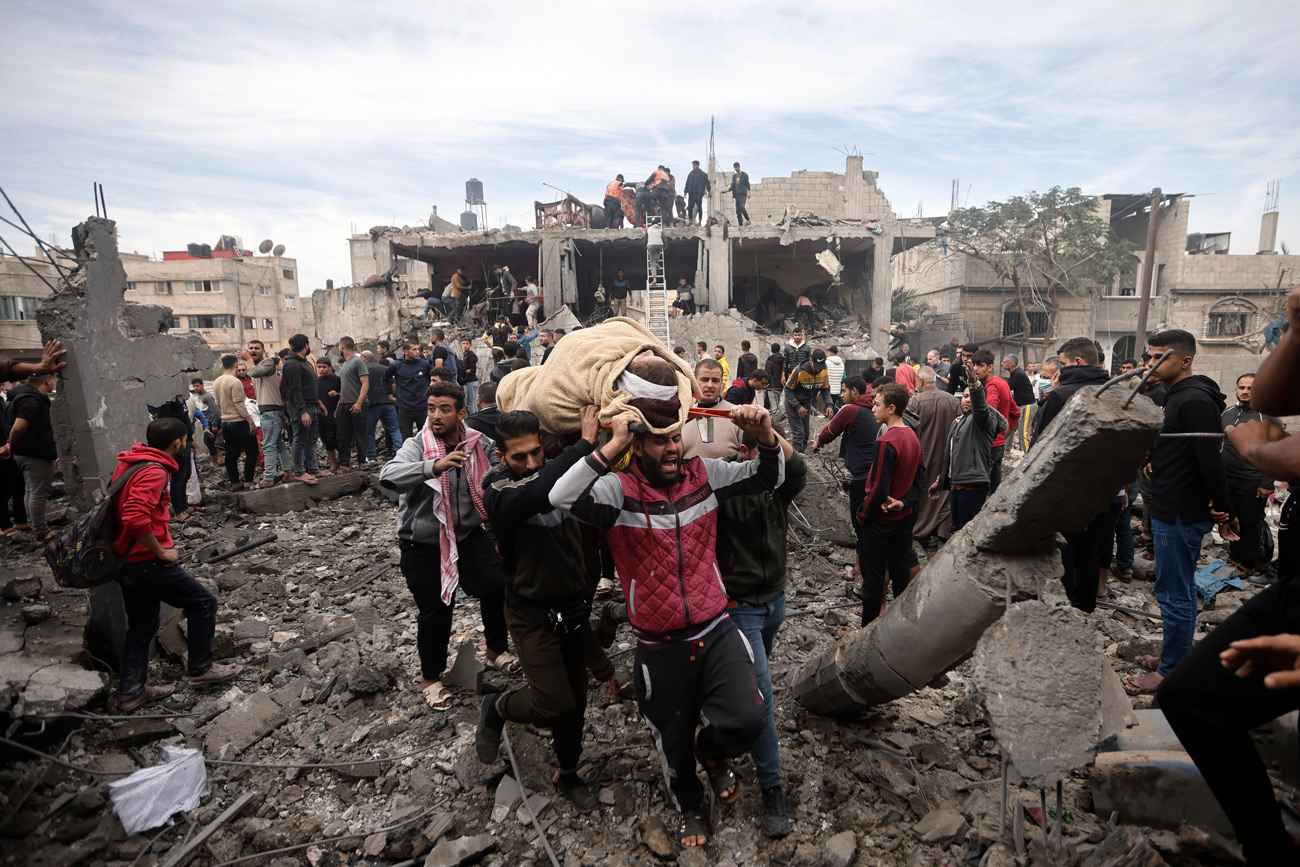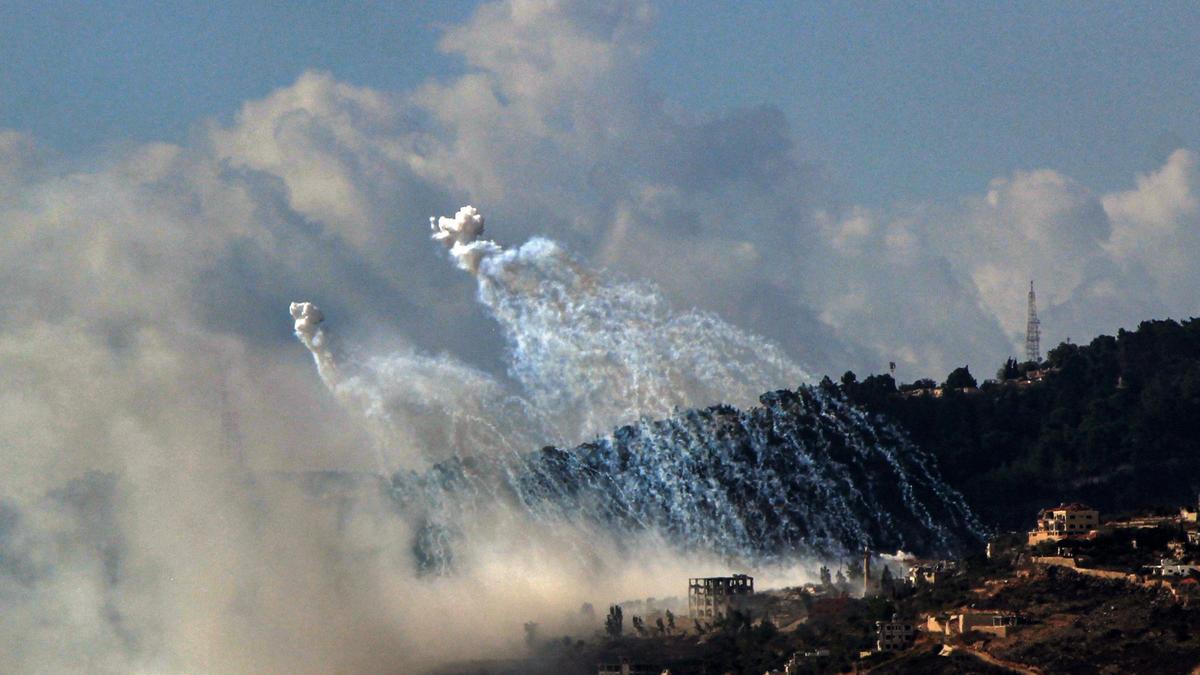An inevitable war that nobody wants
- Hezbollah, the most powerful militia in the Middle East, began attacking Israel from Lebanese lands the day after the Gaza massacre. The future of this second solidarity front with Palestine is related to what is happening on the List. About 91,000 people are internally displaced and tens of deaths.
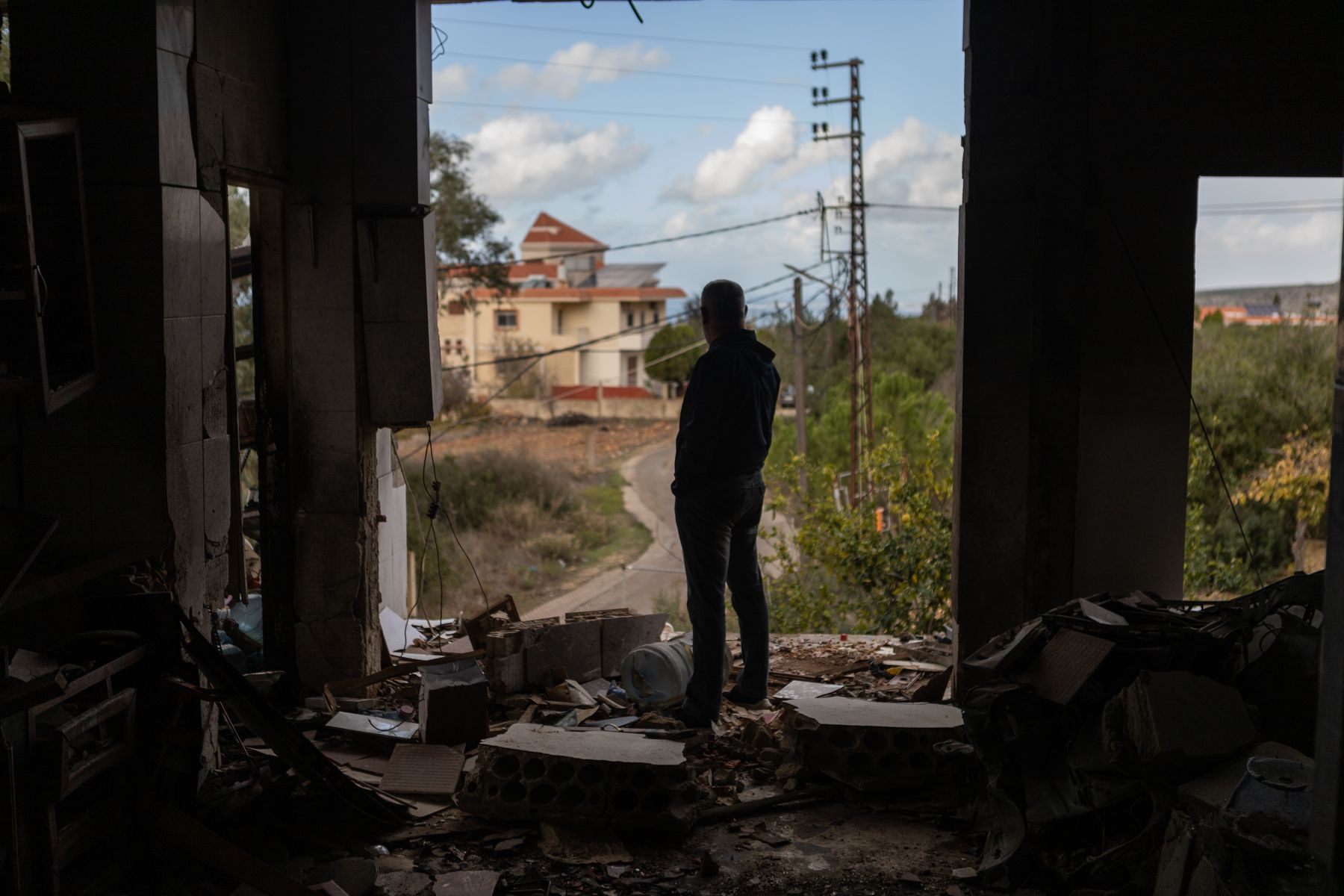
The bombs began to fall on Sunday morning, the day after the attack on Gaza. Ali Farhat and his family knew well what that meant. The bags were made quickly, closed the shutter of the pharmacy and went up into the car so that, while they prayed, their house and their memories would not be buried under the remains of an Israeli attack.
The border of Lebanon with Israel, a border of 130 kilometres, is a territory with little knowledge of peace. This distribution is known as Blue Line. In 2000, the United Nations drew once, coinciding with the end of the Israeli invasion of southern Lebanon, which lasted 18 years since the beginning of the civil war.
This victory consolidated Hezbollah’s authority, which led the resistance not only to the country, but also to the Arab world. Milicia is today the most powerful in the Middle East. The Party of God, returned from the Arab, is an ally of Hamas and on 8 October 2023 began launching rockets against Shebaa and Kfarchouba, areas of the interior of Lebanon occupied by Israel.
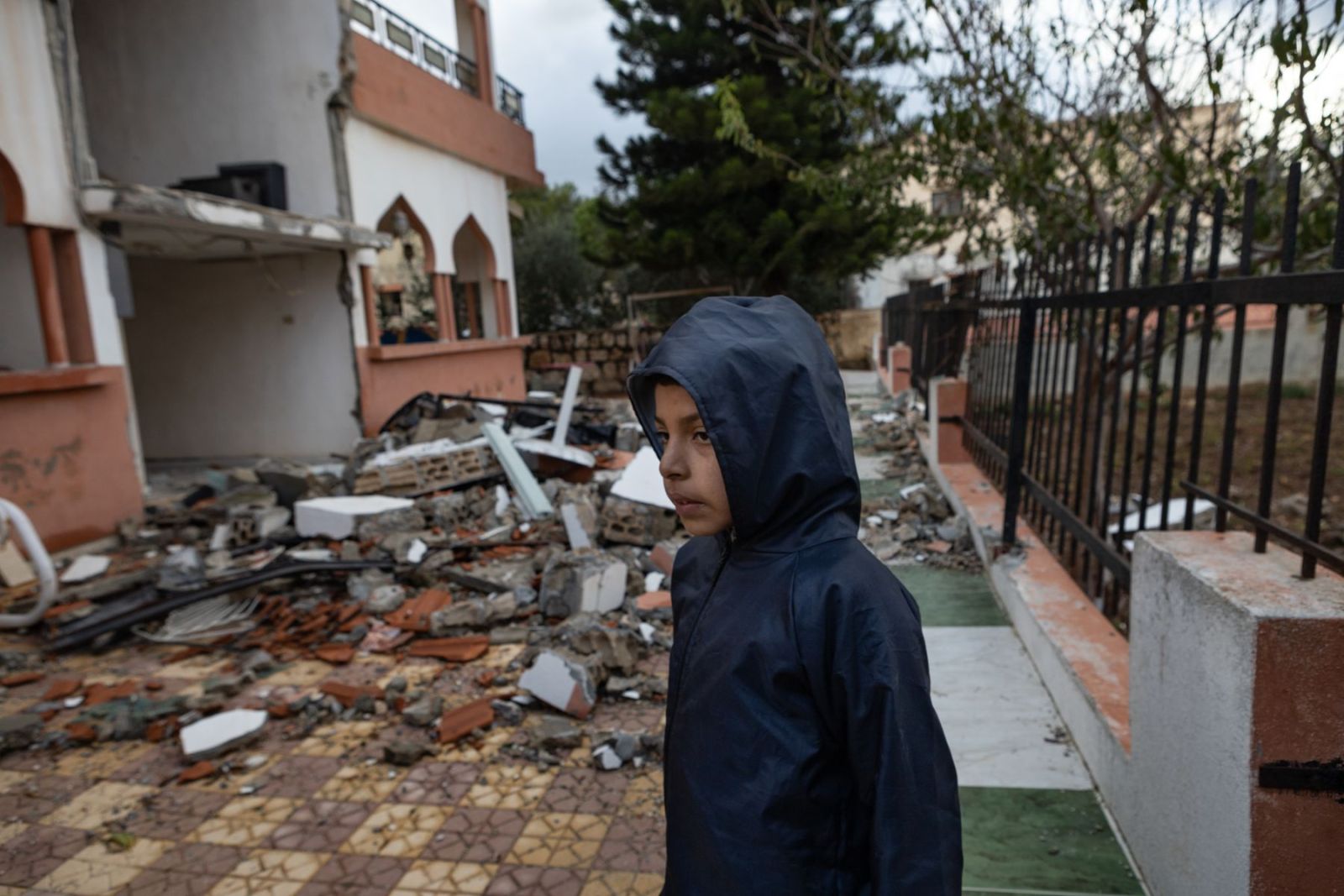
In addition to Gaza, this second war front was opened to give "solidarity and support to Palestine," as Hezbollah leader Hassan Nasrallah repeated in all his speeches. Israel has three military divisions on the border with Lebanon, if not, all these soldiers would work in the extermination of Gaza, says Sayyed, an Islamic leader.
Through his television quotes, which nobody knows where he is physically, Nasrallah de facto has become a spokesman for the Resistance Axis, of the group of militias presiding over the Iranian Regime, which also has a presence in Yemen, Iraq and Syria, which have opted for the Palestinian cause, although most of them are Shiite factions.
Fighting is limited to the border, supported by unwritten rules, but in the Lebanese area the war has already killed more than 50 civilians, including three journalists; it has forced 250 Hezbollah fighters and nearly 91,000 people to leave their homes and their people, according to the United Nations.
The destruction of infrastructure has been a millionaire loss, and it is still too early to measure the damage caused to agricultural crops, the main way of life for the population of the south. Israel is poisoning olive, tobacco and fruit trees by throwing white phosphorus bombs. If this chemical is thrown into civilian areas, war can be a crime.
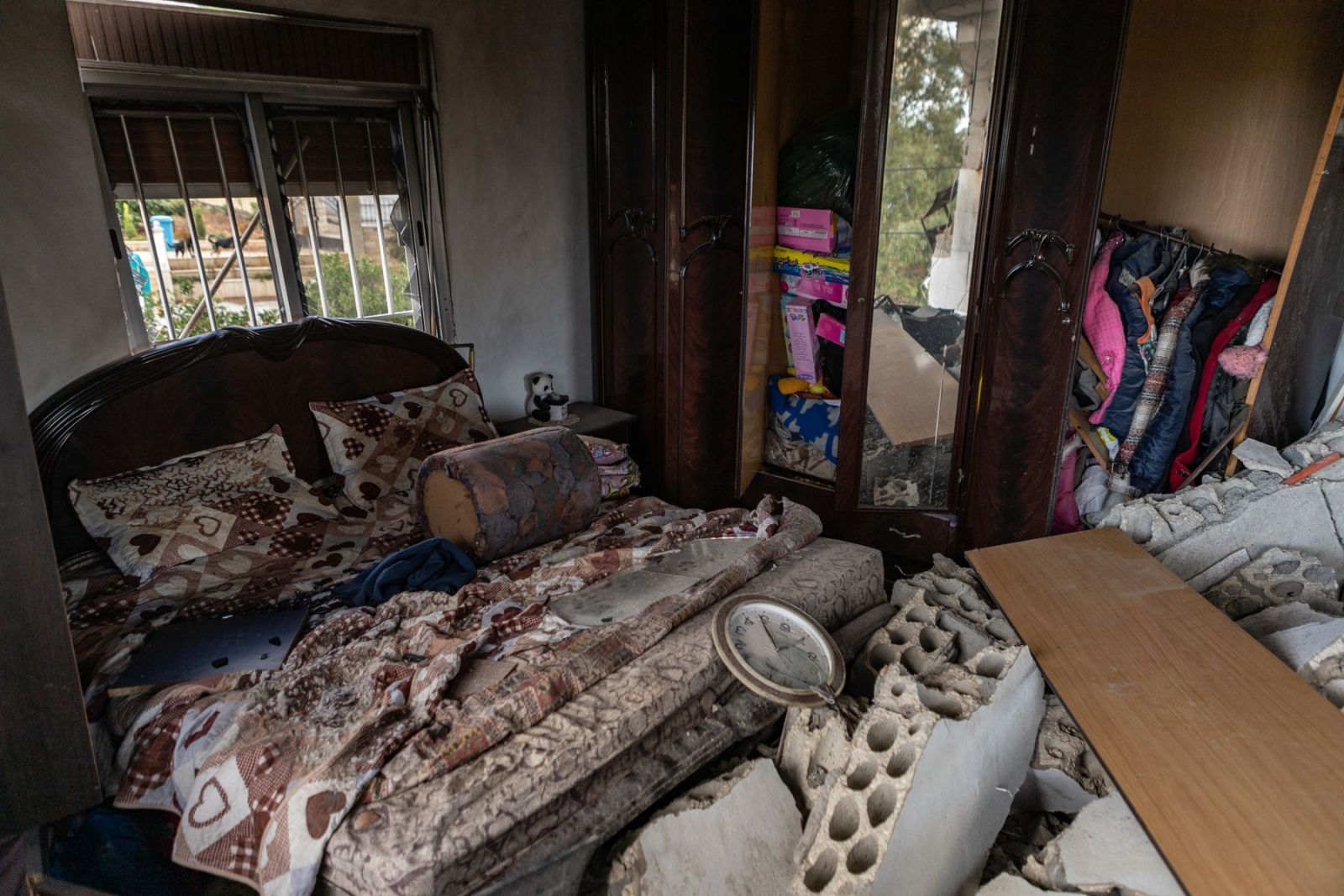
"We live in combat, like the Palestinians. We are not going to leave our land or our weapons," says Ramez Najdi, 66, a peasant, Srifan, in a village 20 kilometers from Lebanon. Although his wife and children have escaped to a displaced center, on the southern coast line, to the first big city, he remains firm: to leave the place of origin would be to give up his people, "a real moqawam," he says.
Moqawam is an Arab term to refer to Israeli resistance. Monopolized under the leadership of Hezbollah, with one of the main strengths in the south of the Shiite majority, Najdi assumes this term for a population accustomed to living for decades under intense conflict dynamics.
The limits of a war that could blow up the Middle East were the first days of the offensive in which Lebanon held its breath, until the silence
of the leaders self-responded: no one wants this inevitable war. Nasrallah took three weeks to give its first conference. This detail does not correspond to its fluidity in the 2006 war, in the last conflict between Hezbollah and Israel.
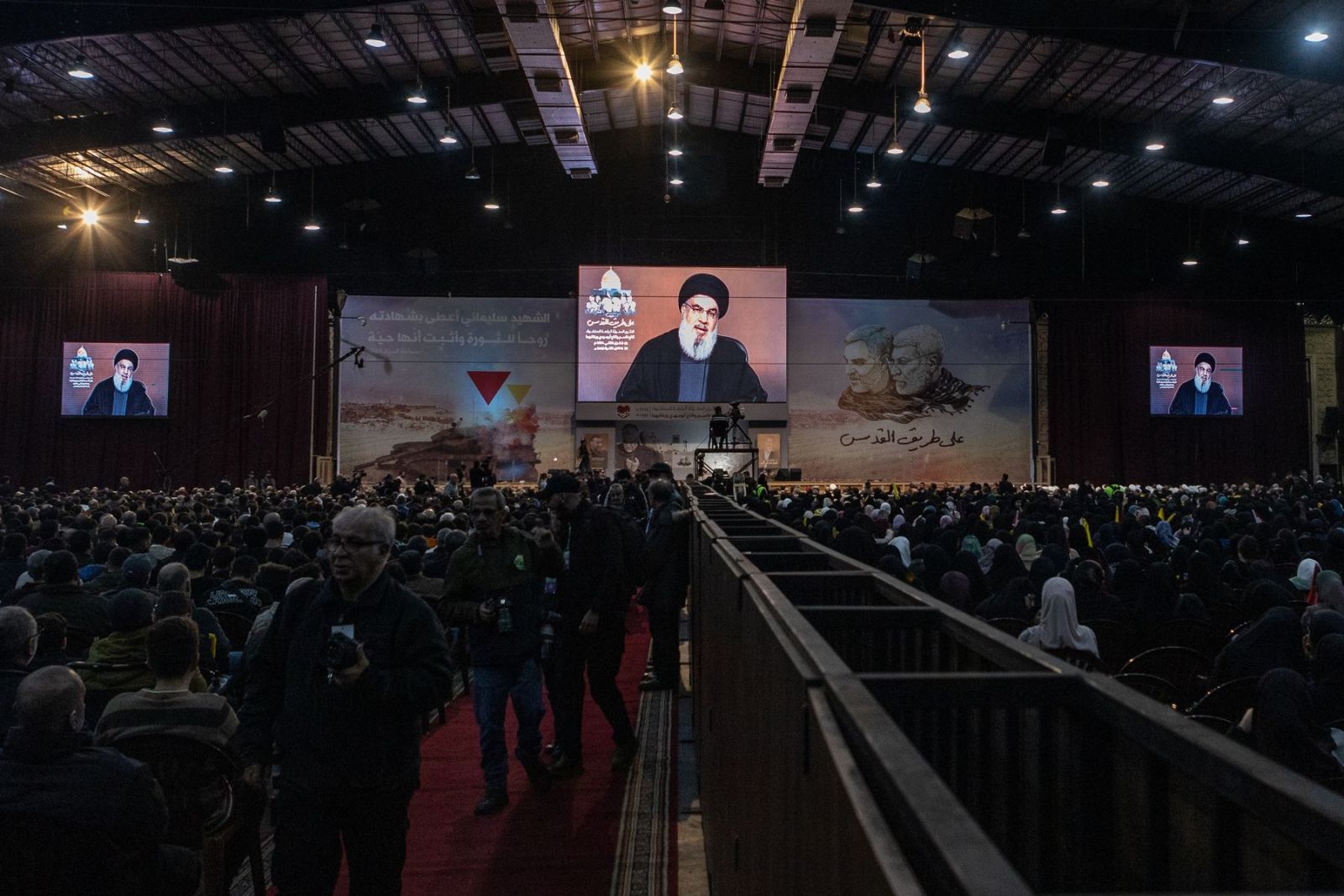
The cause of the birth of the militia is the destruction of Israel. The lack of coordinated attacks with sixteen, which would surprise the enemy, questioned this commitment. When Nasrallah spoke, he reaffirmed what was known: that the war was in southern Lebanon and that this was enough, the main focus is Gaza.
One of the causes of this apparent moderation is related to Iranian influence, as "it does not seem to be seeking a large-scale war," said David Wood, analyst at the International Crisis Group. Although Nasrallah underlines the independence of each of the Resistance Axis militias, this attack on Gaza can be understood as an extrapolation of tensions between Israel and the US and Iran. Hezbollah ' s increased participation would erode the main asset of the Islamic Regime region and weaken its protection and shield against a possible direct attack by Israel.
Moreover, the increase in violence would not have much recognition in Lebanon, because the country cannot face war. After the political and financial earthquakes, the lira has suffered a devaluation of about 90 per cent and 80 per cent of the Lebanese live below the poverty rate. The country remains in a precarious balance thanks to the sending of external money and the resilience of a population used to shock. After the 2019 Revolution, in Thaw, came the theft of the financial system, in which banks took advantage of social instability to evict the country’s funds.
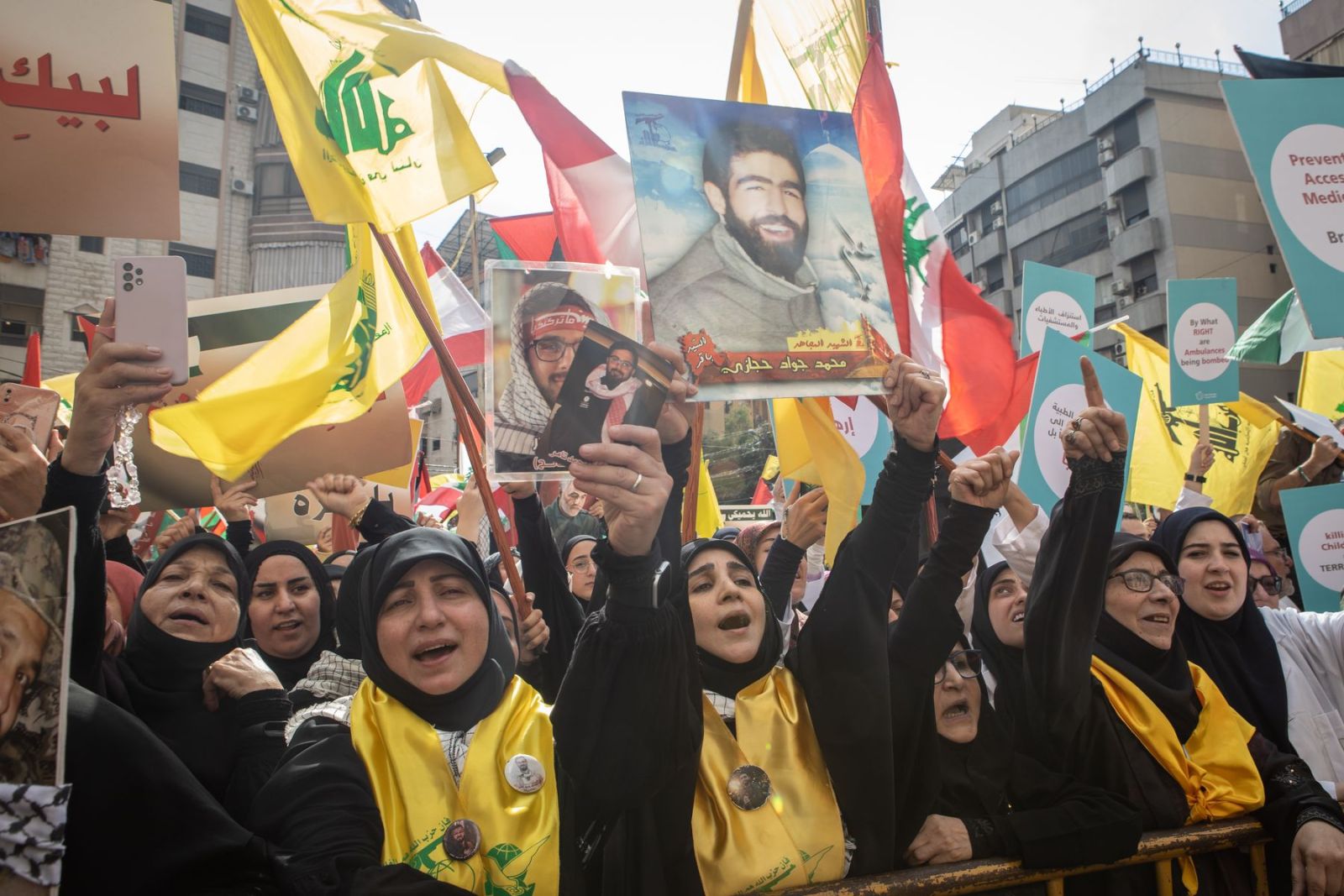
The coronavirus fitted the protests and when people started to stir sloths, corruption once again exploded the port of Beirut. The population maintains its survival thanks to a sense of humor and the clientele network of a system based on sectarian affinity, which can only live daily.
The United States has not yet given Israel the green light. Hezbollah is not Hamas. Militia, which behaves like a parallel state within Lebanon, has over 100,000 members and can fight Israel head-on. In the US country, it is about to start the electoral race while it has fires in Ukraine and the Middle East, and is aware of the destruction – and therefore of the financial protection that this limitation should provide to Israel – that could lead to the region.
This front has therefore remained limited to unwritten rules. One of the criteria for assessing the intensity of the war in southern Lebanon and northern Israel depends on the distance from the attacks. Daily clashes occur along five kilometres of the Blue Line and most are aimed at military bases and positions.
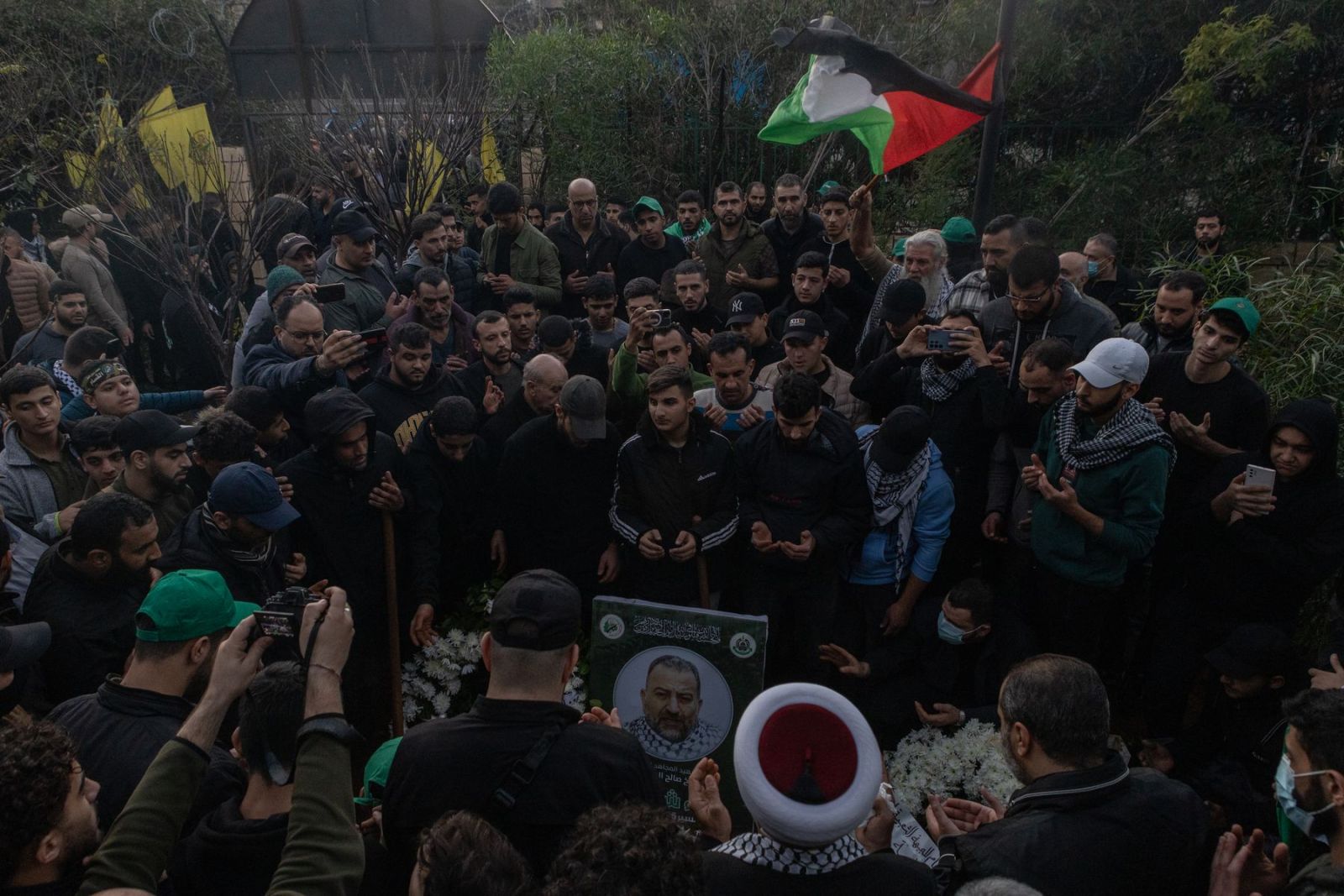
This erosion conflict is based on the "deterrent balance", that is, the prevention of new attacks showing the destructive capacity itself, indicating the damage the enemy can cause if violence increases.
"Being afraid of Hezbollah's weapons is more threatening to Israel than actually using the Hezbollahk weapons," Wood explains. And within these dangerous rules of play has been the escalation of war, although it has often been about to explode.
The direct war was the closest in early 2024, after the death of Saleh Al Arouri's second in Beirut, 100 kilometers from the front line. With the attack on Dahien, a district controlled by Hezbollah, Israel broke into a new phase of war based on the selective killing of significant members of the Resistance Axis.
The radical Islamic militia was in charge of keeping the conflict limited. The tension experienced in the country during that week recalled the uncertainty of the first weeks of conflict. Lebanon awaited the decision of Nasrallah, whose rhetorical blood and vengeance were far from the calculated response. The fire was avoided.
Following the Beirut attack, explosions have taken place in the Sidon area, less than 50 kilometres from the front, and the most recent explosions have taken place near the city of Baalbek in northeastern Lebanon.
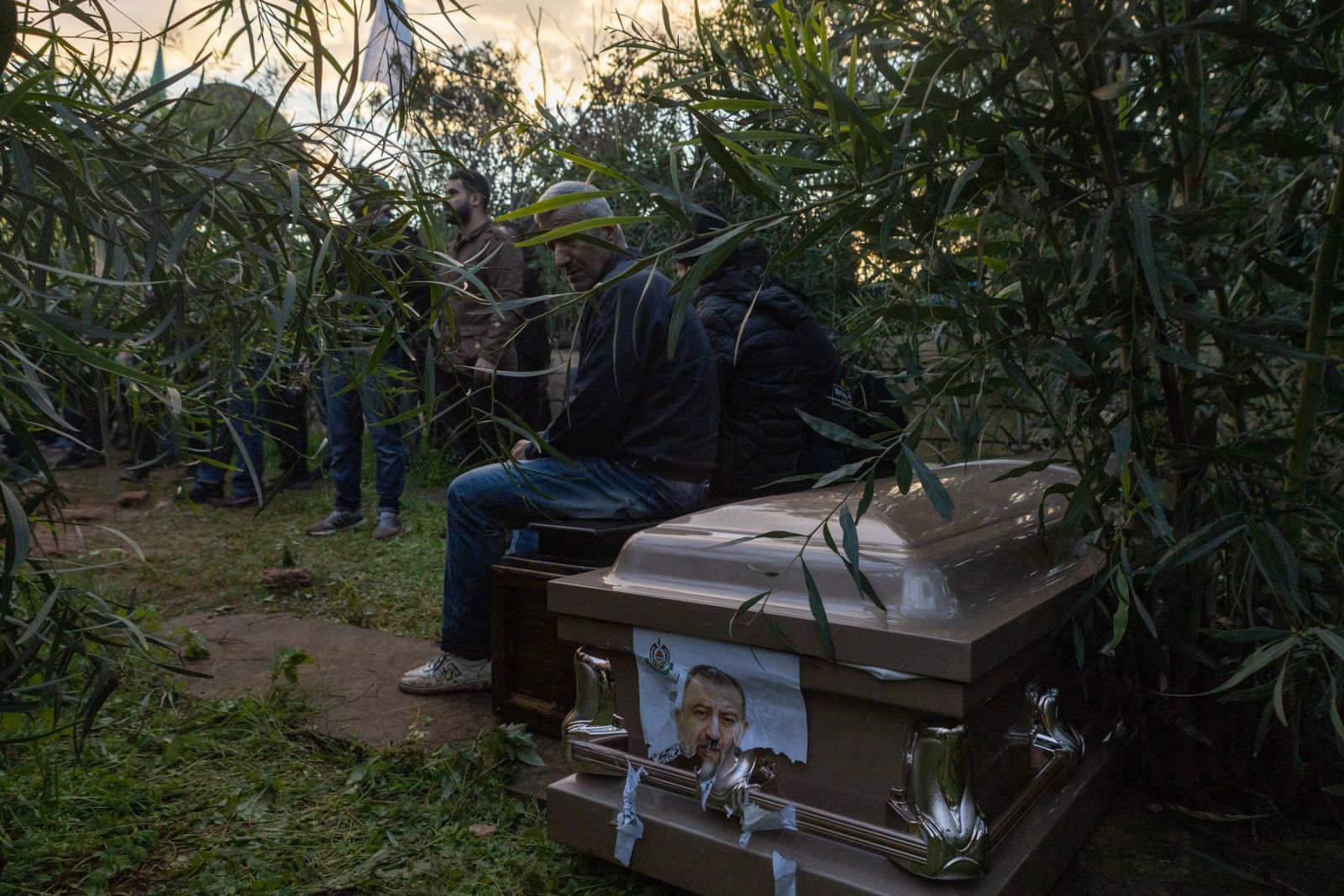
"Escalation is limited and controlled within the logic and rules of war. Geographically, it is also governed by the principles of action and reaction," says Hassan Ezziparte, a member of the parliamentary bloc Loyalty to the Resistance of Hezbollah.
The slogan that has been repeated since the beginning of hostilities is that no party wants war. However, Ezcedin explains to ARGIA that "resistance is ready, has the necessary weapons and tools to deal with the increase in enemy violence and to defend Lebanon and its people". Eye for eye.
High-tension negotiations, more violent fronts Having happened in November a few days before the temporary suspension of fires,
Israel is increasing the intensity of the attacks in both Gaza and Lebanon. The tension in the negotiations for a ceasefire has shifted to the fronts of war.
"This last phase of violence is occurring in a context in which attempts to negotiate EE.UU. Iran's and Israel's discrepancies are on the rise and the critical situation of the Rafah crossing," said Lebanese analyst Joe Macaron.
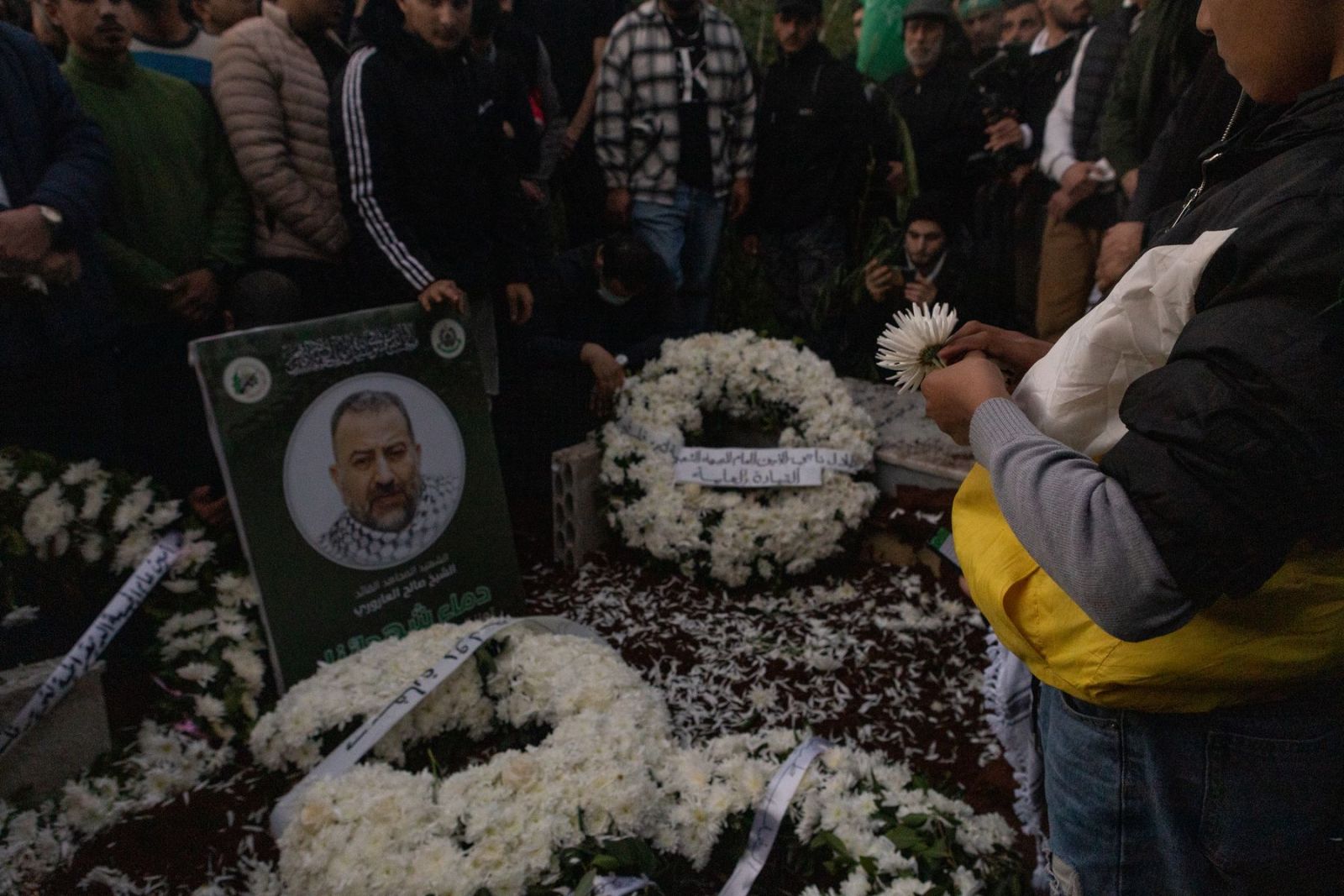
Asked about the progress of the negotiations, Ez2009 has given a brief response, repeating the official speech of the militia: "Our priority is to stop the war in Gaza. That is why anyone who wants to make progress in the negotiations should not convince us of either Lebanon, Iraq or Yemen. When the attack on Palestine is over, the other fronts will be over."
Militia has sent this message to Israel via intermediaries, because Hezbollah does not sit down with EE.UU. at the negotiating table, which considers the terrorist group. The war ministers of Israeli Prime Minister Benjamin Netanyahu have been insisting for weeks that attacks on Lebanon may be aggravated by a truce in Gaza.
Northern Israel is a desert with demolished buildings, cut roads and abandoned farms. To facilitate military operations by the army, nearly 100,000 settlers have been evacuated since October. After five months without response and waiting in hotels, unlike the Lebanese, who have not received the support of their government, Likud feels the pressure of the displaced on his back.
Hezbollah poses a threat to these northern enclaves and Israel, together with the US, has prioritized eliminating this militia. This was established by United Nations Security Council Resolution 1701, signed after the destruction of Lebanon’s communication and infrastructure lines by Israel in the 33-day conflict in 2006. This agreement determines the neutral zone and the disarmament of Hezbollah, and leaves them under the control of the Lebanese Army and the UN's intermediate forces, which have a secondary role in this war. The
area lies between the Blue Line and the Litani River, about 30 kilometres from the border.
The sound of the Gaza war in the Palestinian camps beyond the Front, in the rest of Lebanon life is still common, with hardly any changes. The death toll continues on social media, and protests by Palestine that blocked the major arteries of
Beirut in October have dropped dramatically and do not bring people together.
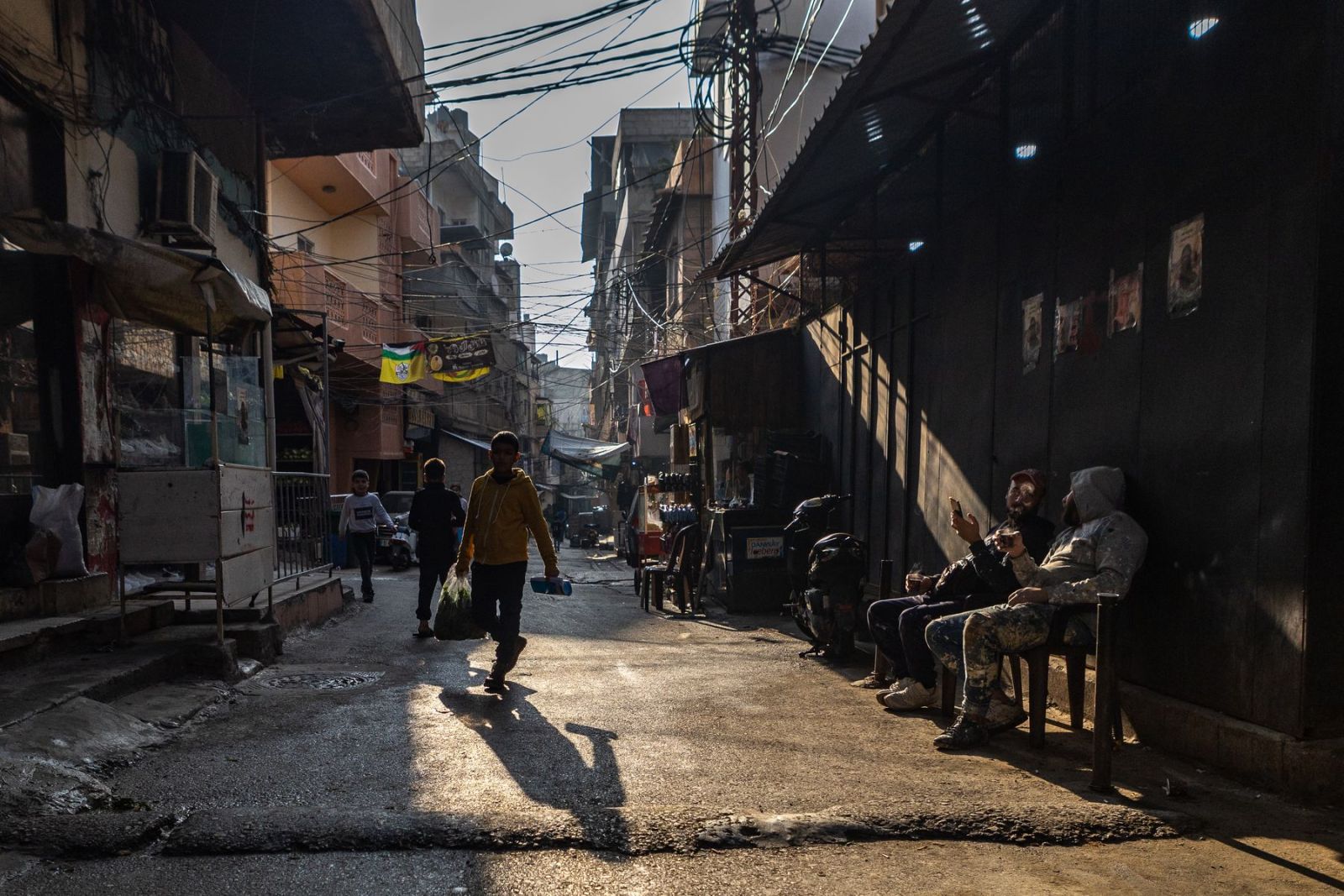
However, the genocide in Gaza is reflected in the twelve Palestinian refugee camps, where 240,000 people live, according to the UN. The first Palestinians arrived in Lebanon in 1948, following the Nakba disaster. Today, the old tents
are precarious cement neighborhoods on the outskirts of major cities. The Lebanese State delegates to the Palestinian groups the government and security of these peoples.
The Lebanese law treats Palestinian refugees as second-class citizens and denies them access to fundamental rights, such as nationality, property or access to essential positions such as medicine, advocacy or engineering.
Poverty and stigma push many Palestinians into the sea, the only solution being migration. "We are not people, we have fewer rights than foreigners," says Marwan Maamani, 38. His three children play in the trade he manages and Grandpa Beddawira was one of the first to reach the refugee camp in northern Lebanon.
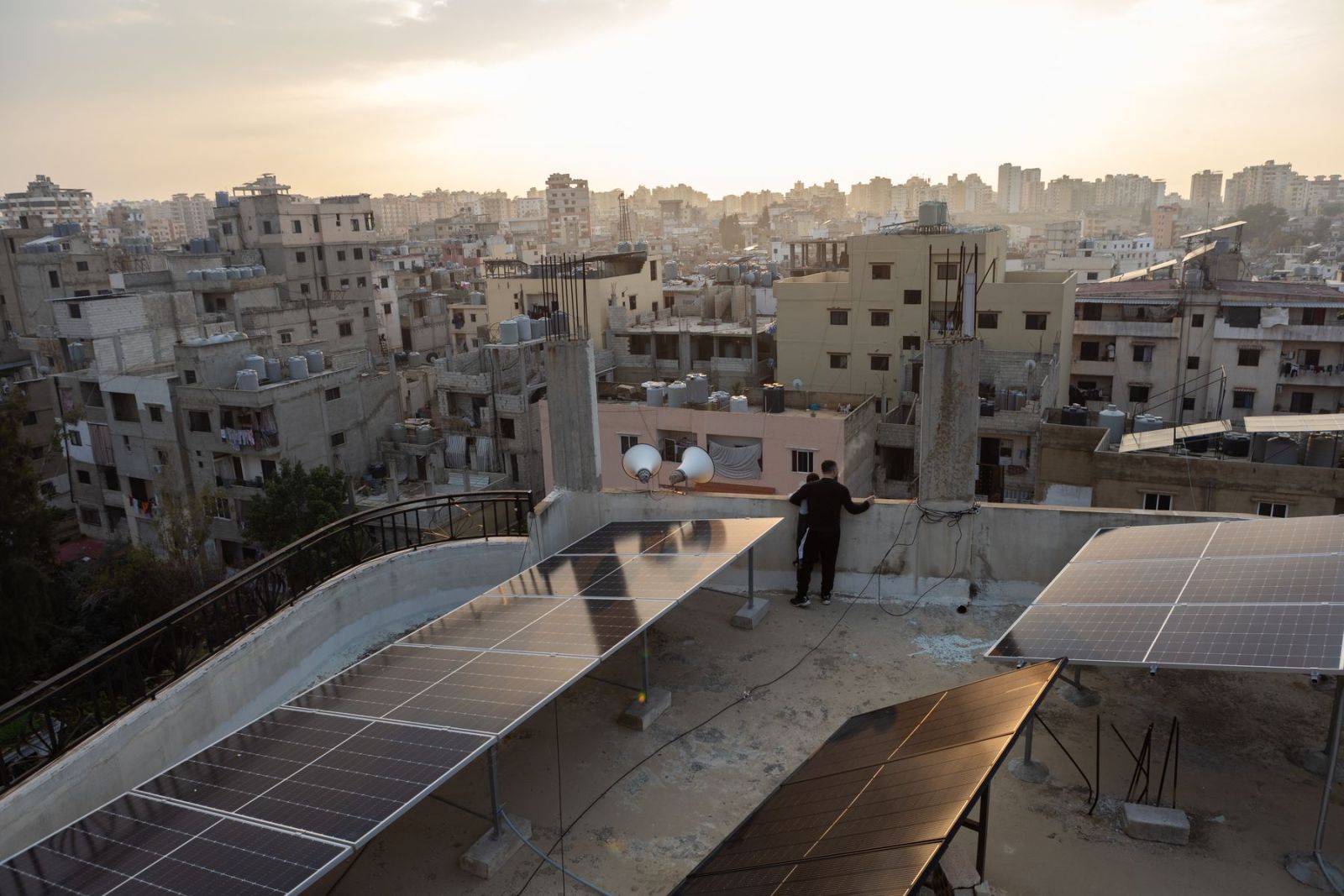
"You want to leave but without nationality you can't. And above all, what would happen next with our right of return? Following Operation Al Aksa, I am sure victory is close and the time has come for the Palestinians to return to our territory," he continues. In the camp, he's making bowls. The war in Gaza has put an end to decades of waiting and has given new impetus to the hope that the end of the occupation will come soon.
In the camp, the Palestine Liberation Organization (PAE) gathers the factions and struggles between them beyond Sixteen, within which there are pragmatic views and critical voices than those of Marwan. "We respect their struggle and their weapons," started Palestinian activist Hatem Mokdade. However, we are now trying to fix the electricity in the camps, to achieve better infrastructure and education for our youth," says Palestine accused of corruption and immobility. And he argues that fighting for the right to return to Palestine is not against ensuring decent living conditions for refugees.
Hamas ' s growing reputation is changing its internal balance, creating new alliances and threatening the domination of traditional aspects. The Ein el Helue refugee camp, where 60,000 people live in the south, is considered the capital of Palestinian refugees in Lebanon and is the largest population camp. Their future, now more than ever, is related to what is happening in Gaza.
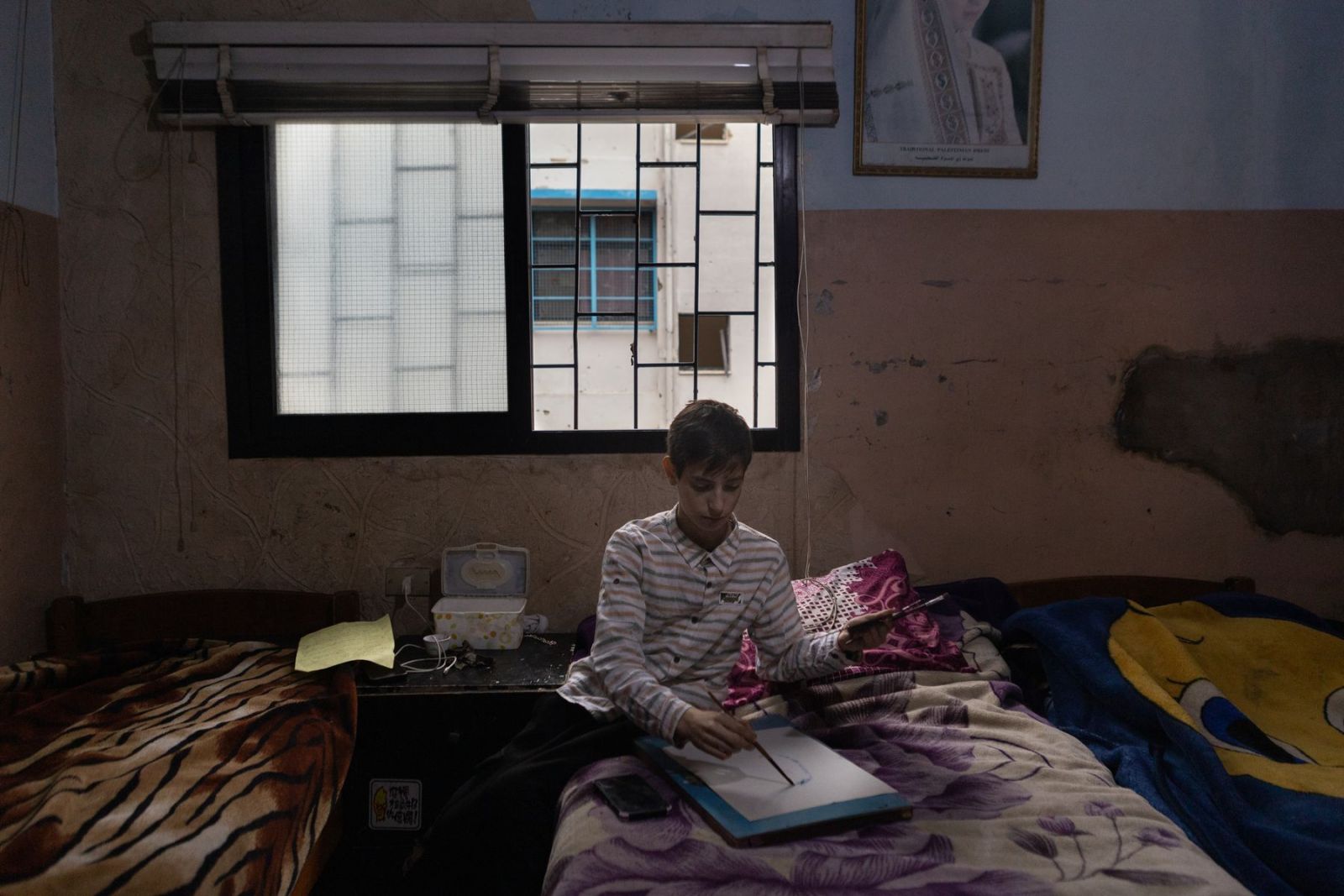
"When the war ends, we don't know what will happen to us," says a refugee who prefers not to give his name. The shots between Al Fatah, the main organization that structures the EAP, and Islamist groups began in summer inside the camp.
The school marks the border between the two parties and, without anyone signing anything, hell ended on 7 October: the only cause and the memory of the same enemy made the internal conflict irrelevant. "It makes no sense for Palestinians to be killed when we have a major common enemy," says Rahif Almeari with a touch of despair. His house is on the front line between the two groups and the bullets pierced the room walls.
He is 13 years old and is known in the camp because he draws in canvases the symbols of Palestine. Olives, kufiya models, maps or resistance leaders. "Israel wants to erase our traditions and that's why I paint, because I want to make our culture known outside. In Lebanon or Gaza it is important that people know who we are Palestinians," Almea says with the voices of adults.
On the pretext of leaving Hezbollah out of play, Israel has attacked Lebanon, which has been rejected. As a result, small Switzerland in the Middle East has been placed in the media spotlight, but remains an unknown country. In ancient times it was the origin of an important... [+]









